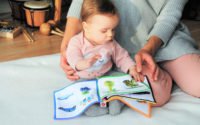Enrolling in a Child Psychology Course: 3 Vital Areas That You Can Explore
Child psychology is a specialized area that refers to the study of conscious and subconscious childhood development. If you want to work as a pre-primary or primary teacher and help kids in their early days of learning, then a child psychology course can help you a lot.
But what will you learn during a child psychology course? What are the areas that will be covered during this course? Well, various areas will be covered. Here, we have listed down a few main areas for you –
-
Development
Considered the most important area of child psychology, development is divided into three parts –
- Physical development – It refers to physical body changes. Generally occurs in a relatively stable, predictable sequence, this includes the acquisition of certain skills, including gross-motor and fine-motor coordination.
- Cognitive development- This refers to the processes children use to gain knowledge and includes thought, language, reasoning and imagination.
- Social and emotional development – These areas are so interrelated that they are often grouped. A child’s social development means learning to relate to others, while emotional development involves feelings and the expression of feeling. Fear, confidence, pride, friendship, and humour are all part of one’s social-emotional development.
While they are divided into categories for the sake of easier understanding, the physical, cognitive and social-emotional areas of a child’s development are all inextricably linked. During a child psychology course, you will learn these principles and know how to implement these in a classroom.
-
Behaviour
All children can be naughty, defiant and impulsive from time to time. Conflicts between two children and between children and parents are inevitable. These behaviours are a normal part of the growing-up process. But some children are difficult to handle in the classroom, with challenging behaviours that are outside the norm of their age. In fact, behavioural issues are the most common reason why children behave awkwardly in the classroom. Behavioural issues can be temporary problems that are usually linked to stressful situations. Besides, these issues involve a pattern of sustained aggressive, hostile or disruptive behaviours that are not appropriate for a child’s age. After the successful completion of this online teacher training course, you will learn how to deal with behavioural problems in children and motivate them in the study.
-
Emotions
Emotional development involves learning different feelings and emotions. Understanding how and why they happen, along with recognizing one’s own feelings and those of others, then developing effective ways of managing them. Learning to regulate emotions is more difficult for some kids than for others. It may be due to their particular emotional temperament – some kids may simply feel emotions more easily and intensely. They tend to be more emotionally reactive and find it harder to calm down. Besides, emotionally reactive children also tend to get anxious more easily and quickly than other kids. You will learn to identify the reasons a child is having difficulty expressing or regulating his or her emotions. Then they will develop strategies to help the kid learn to accept feelings and understand the links between behaviour and feelings.
Besides the mentioned areas, you will also delve deep into areas like milestones, socialisation and more. After the completion of the course, you will be familiar with every nook and corner of child psychology and implement these when teaching in a class full of kids. So, what to wait for? Opt for a leading Online teacher training institute like APTTI, and enroll in a child psychology course today!


